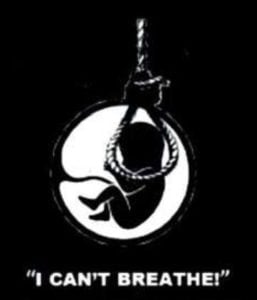If you’re tired of censorship and dystopian threats against civil liberties, subscribe to Reclaim The Net.
A federal appeals court has ruled that a lawsuit filed by a fired Arkansas firefighter over a Facebook post will proceed to trial, reinforcing the principle that public outrage alone is not a legitimate basis for punishing constitutionally protected speech.
Steven Melton, a pro-life evangelical Christian and former firefighter in Forrest City, was terminated after posting on Facebook in June 2020 an image depicting “a silhouette of a baby in the womb with a rope around its neck.” The image included the caption: “I can’t breathe!”

According to the decision by Judge David Stras, joined by Judges Lavenski Smith and Ralph Erickson: “His intent was to convey that he was ‘anti-abortion.’”
We obtained a copy of the decision for you here.
After a retired supervisor said the post resembled “a noose around the neck of a black child” and referenced racial unrest following George Floyd’s death, Melton “agreed to delete it immediately.”
But the city’s response didn’t end there. Mayor Cedric Williams summoned Melton to his office the next day and, despite Melton being “apologetic,” placed him on leave pending an investigation. That investigation lasted one day.
The mayor, after consulting with the fire chief, two retired firefighters, attorneys, and human resources, decided to terminate Melton over what he described as the image’s “egregious nature.”
The city later justified the dismissal by citing the backlash. According to the court’s opinion, “the fire chief’s phone had been ‘blowing up,’ ‘several’ police officers had become ‘very upset,’ and the ‘phone lines’ were jammed with calls from angry city-council members and citizens.”
Some residents reportedly said Melton “should not be a part of the…fire department responding to calls,” and a few even expressed that they didn’t want “him coming to their house … for a medical call or fire emergency.”
Melton first learned of his termination not from his employer but through the media. A press release from the mayor stated that “questionable social media posts” were the reason. He subsequently filed a First Amendment retaliation suit under 42 U.S.C. § 1983, arguing he had been fired for expressing a constitutionally protected opinion on a matter of public concern.
The district court had dismissed the case, ruling Melton’s speech wasn’t protected. But the Eighth Circuit disagreed, finding that “the record is clear on the first issue. Melton posted the image to his personal page on his own time, and there is no dispute that race and abortion are matters of ‘political, social, or other concern to the community.’”
The appellate court further explained that although public employees face limits on speech, they “do not surrender all their First Amendment rights by reason of their employment.” Under the Pickering test, courts must weigh the employee’s right to speak on matters of public concern against the government’s interest in ensuring workplace efficiency. However, that balancing act only applies when there’s real disruption or at least a reasonable prediction of it.
But in this case, the court found “the evidence of disruption is thin.” It noted, “everyone agrees ‘that there was no disruption of training at the fire department, or of any fire service calls, because of the post or the controversy surrounding it.’” The mayor’s decision instead appeared to hinge entirely on public reaction and external complaints.
“The problem,” the court continued, “is that there was no showing that Melton’s post had an impact on the fire department itself. No current firefighter complained or confronted him about it. Nor did any co-worker or supervisor refuse to work with him.” The panel warned that accepting the mayor’s rationale risked “constitutionalizing a heckler’s veto.”
The court also pushed back on the mayor’s forward-looking justifications, stating, “To provide a ‘reasonable prediction[]’ sufficient to take the case away from a jury, a decisionmaker must do more than make a vague statement in response to a conditionally worded question about what could happen.”
The opinion leaves it to a jury to decide whether the city’s stated concerns were genuine or if “what he said masked the true reason for Melton’s firing, which was a disagreement with the viewpoint expressed in the image.”
In allowing the claim to move forward, the court also ruled against the mayor’s request for qualified immunity at this stage. It wrote, “Insufficient evidence of a disruption would be ‘fatal to the claim of qualified immunity’ because there would be no governmental interest to weigh.”
The outcome at trial will hinge on whether the city’s stated justification withstands scrutiny or whether, as the record suggests, Melton’s dismissal was simply retaliation for a viewpoint some found objectionable.
If you’re tired of censorship and dystopian threats against civil liberties, subscribe to Reclaim The Net.
The post First Amendment Lawsuit Over Firing of Arkansas Firefighter for Social Media Post Can Proceed appeared first on Reclaim The Net.
Click this link for the original source of this article.
Author: Cindy Harper
This content is courtesy of, and owned and copyrighted by, https://reclaimthenet.org and its author. This content is made available by use of the public RSS feed offered by the host site and is used for educational purposes only. If you are the author or represent the host site and would like this content removed now and in the future, please contact USSANews.com using the email address in the Contact page found in the website menu.





